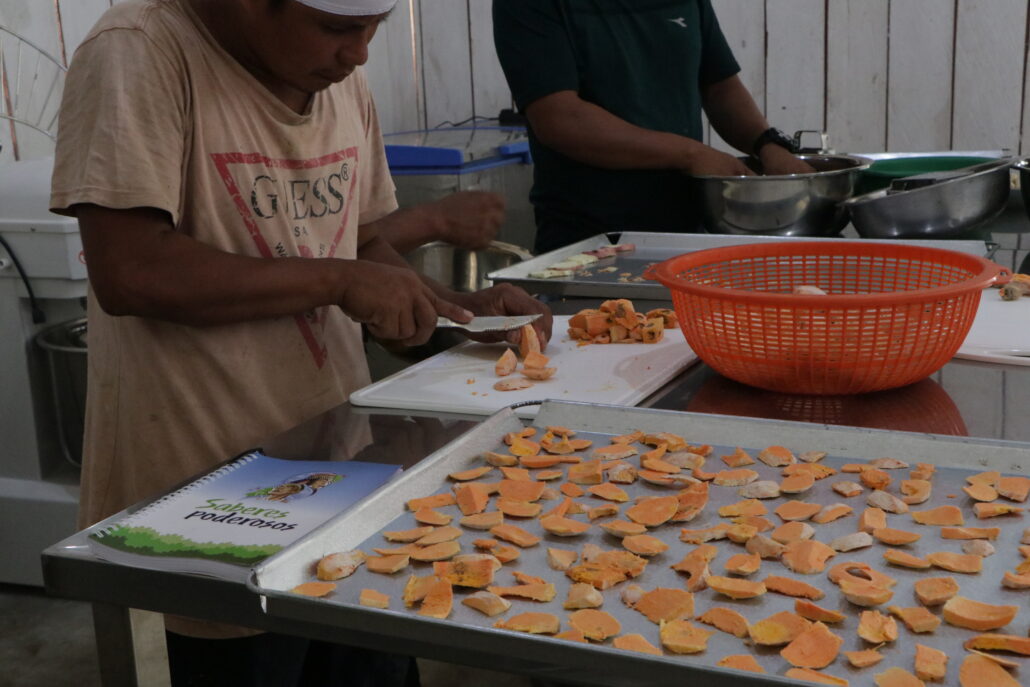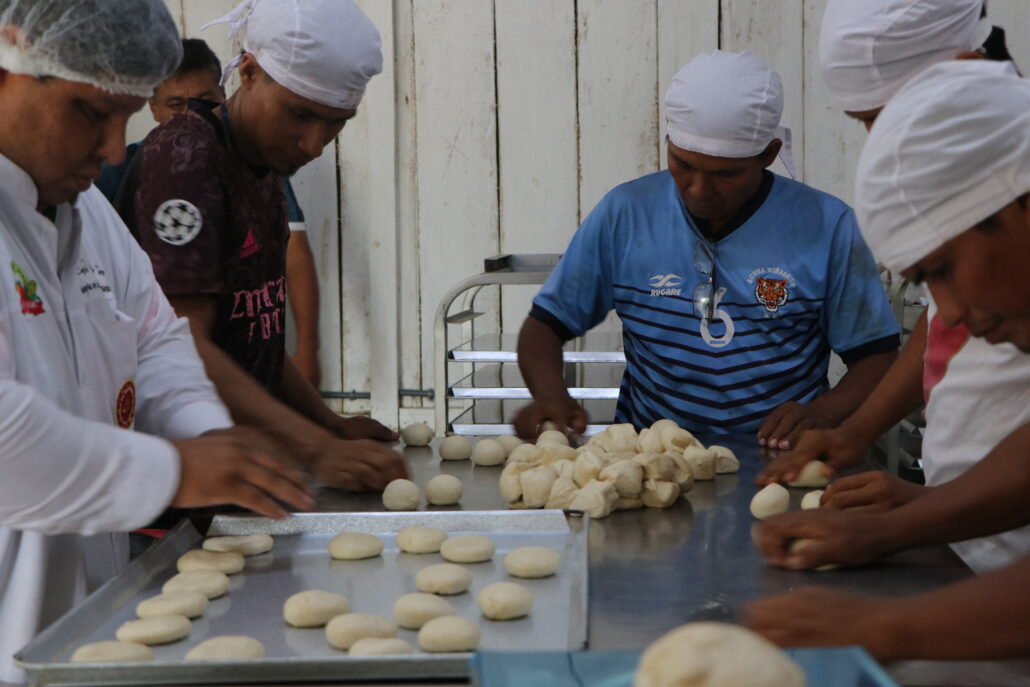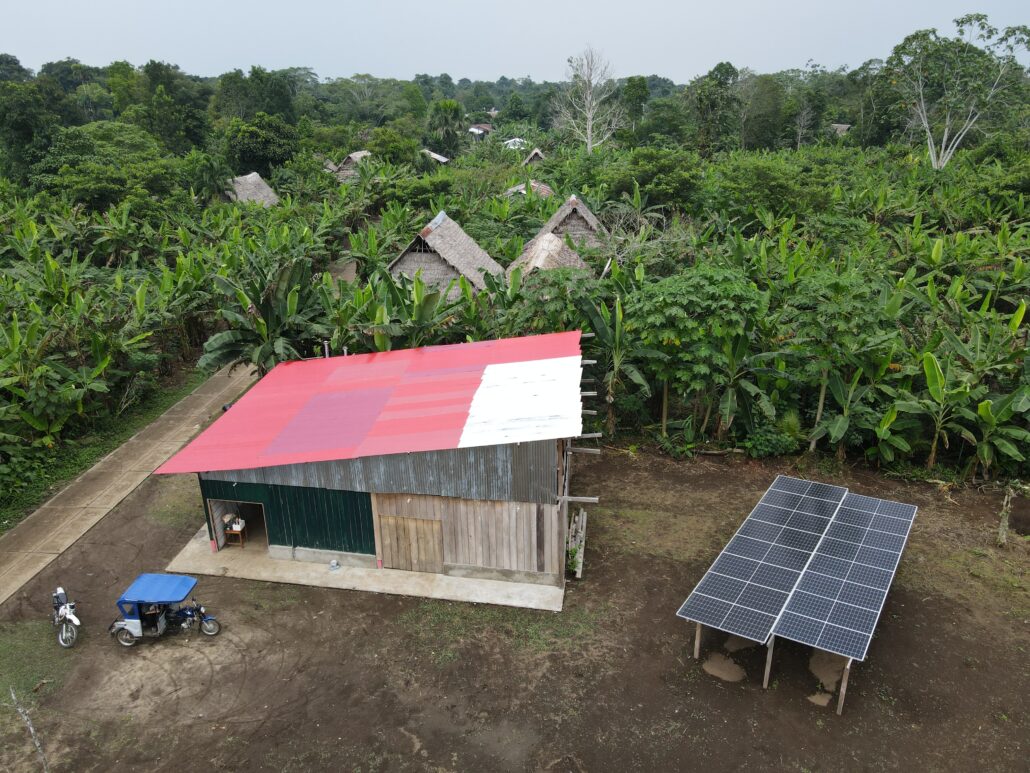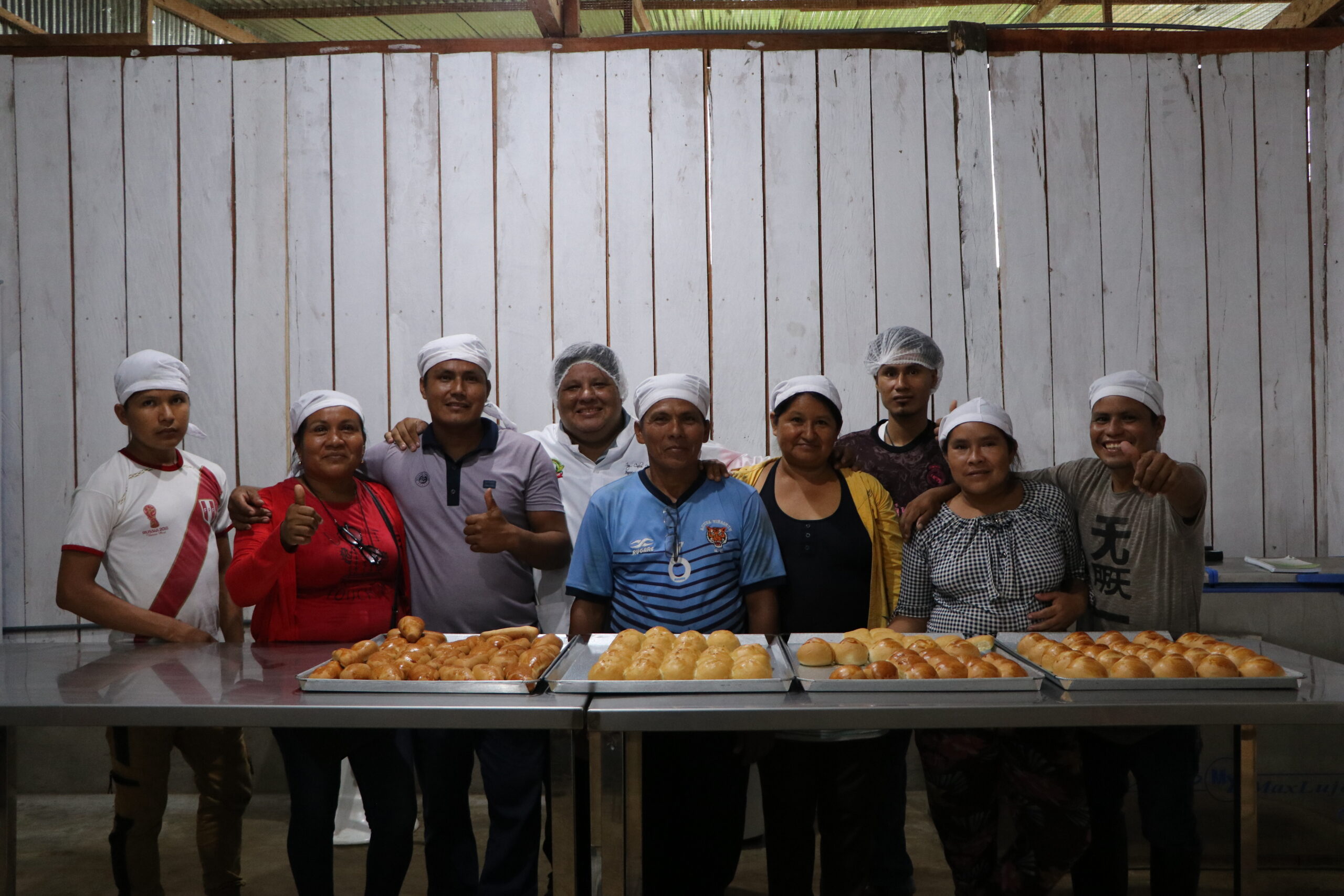On February 29th and March 1st, the association “Los Mishky Muyo del Medio Tigre” from the Alfonso Ugarte Native Community, located in the buffer zone of the Reserva Nacional Pucacuro (Loreto), received training in bread making.
During the course they learned to make more than six types of bread. In addition to commercial breads such as “bico”, hamburger, yolk, bagel and sponge cake, they made hamburger bread with “macambo” flour, bico bread with “banana” flour; also they learned to produce substitute flours with local native resources, such as “pijuayo”, “camote regional”, “plantain”, “yuca” and “macambo”. All this thanks to its high-tech equipment and oven that operate based on renewable energy (photovoltaic systems). In addition to contributing to the food security of the community, using native products, the sustainability of the initiative will also boost the local-communal economy.
 Having identified an opportunity in the local market: the supply of bread was not meeting the demand of local consumers, on Saturday, March 2nd, was their first official day of sale. This marked a significant milestone for the Tigre district and for the 10 members of the association, 5 men and 5 Kichwa women. As mentioned by Breno Macuyama, president of “Los Mishky Muyo del Medio Tigre” Association, the main and first locations to which they will supply their products will be the Capital of the Tigre district, Intuto, and the surrounding native community, 28 de julio, their projection is the sale of six thousand loaves a day.
Having identified an opportunity in the local market: the supply of bread was not meeting the demand of local consumers, on Saturday, March 2nd, was their first official day of sale. This marked a significant milestone for the Tigre district and for the 10 members of the association, 5 men and 5 Kichwa women. As mentioned by Breno Macuyama, president of “Los Mishky Muyo del Medio Tigre” Association, the main and first locations to which they will supply their products will be the Capital of the Tigre district, Intuto, and the surrounding native community, 28 de julio, their projection is the sale of six thousand loaves a day.
Bread is a highly valued resource in the native and riverside communities of the Peruvian Amazon, since they can mostly buy it only when they move to large communities or district capitals to sell and buy products.
 Likewise, as Flor Ulcuhuango, secretary of the association, said, access to energy not only allows them to make baked goods, but also fuels their creativity, since they have freezers as well they started to sell ice, soft drinks and “curichis”. By taking advantage of renewable energy sources, opportunities are opening to promote new products in this basin.
Likewise, as Flor Ulcuhuango, secretary of the association, said, access to energy not only allows them to make baked goods, but also fuels their creativity, since they have freezers as well they started to sell ice, soft drinks and “curichis”. By taking advantage of renewable energy sources, opportunities are opening to promote new products in this basin.
The implementation of photovoltaic systems for productive activities in the communities of the Amazon allows an energy transition towards fairer and more sustainable energies, which brings economic, social and environmental benefits. Likewise, it contributes to the conservation of Protected Natural Areas, territories and defense of rights, contributing to the conservation of biological diversity, the environment, food security and the local economy.
The “Mishki Muyo del Medio Tigre” Association does not stop here, they have just begun the preparation of their comprehensive business plan to present to the Regional Government of Loreto through PROCOMPITE, seeking to obtain public funds to promote and scale this initiative.

The bakery’s success not only represents an achievement for the local community and its partners, but also highlights the importance of community collaboration, environmental sustainability and the pursuit of innovative economic opportunities. This is one more of the productive associations located in this basin that becomes a model to follow in the Peruvian Amazon, demonstrating that the economic development of communities can coexist harmoniously with environmental conservation.
This initiative has been promoted through a strategic alliance of SERNANP, through the Jefatura de la Reserva Nacional Pucacuro, Derecho, Ambiente y Recursos Naturales (DAR) and the District Municipality of El Tigre. The initiative and its strengthening against PROCOMPITE has the support of the projects “Promoviendo energías asequibles, limpias y sostenibles para Loreto”, carried out with the support of the Charles Stewart Mott Foundation; and the project “Reforzando la transparencia y las buenas prácticas en el sector extractivo”, promoted by DAR, Grupo Propuesta Ciudadana and Cedepas Norte, with the support of USAID.


